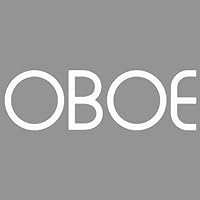How should I choose a Laptop for Android App Development
Android app development is a rapidly growing field, with millions of apps being developed every year. With so many options available, it can be difficult to know where to start. In this blog, we’ll break down the key factors to consider when choosing a laptop for Android app development. From processing power to storage capacity, we’ll cover everything you need to know to make an informed decision. So, let’s dive in and find the perfect laptop for your Android app development needs! However, developing an Android app comes with its own set of challenges.
Some Challenges Faced by Android App Developers regarding hardware and software:
Processor: Developers working on mobile app development face several hardware-related challenges. One of the primary challenges is the need for a powerful processor capable of handling the demands of running and testing multiple apps simultaneously. This is particularly important because mobile app development often involves running and testing code on multiple emulators and devices.
Storage: In addition to the need for a powerful processor, developers also face the challenge of having sufficient storage capacity to store large amounts of data and app files. Mobile app development requires developers to store and manage large datasets, including images, videos, and app files. A laptop with insufficient storage capacity can significantly slow down the development process.
UI/UX Design: Developers must have a good eye for design and be able to create visually appealing and intuitive user interfaces. They must be familiar with design patterns such as Material Design and have experience with tools such as Sketch and Adobe XD.
Portability: Remote workers are always on the go and need easily portable devices. Not all devices are sufficient in providing the best results while also being highly portable with good battery life.
Choosing the Right Laptop for Android App Development
When it comes to choosing a laptop for Android app development, there are several factors to consider. Here are some key features to look for:
Processor
One of the most important things to look for in an Android app development processor is speed. This is because developing apps can be a resource-intensive process that requires a lot of computing power. A processor with a high clock speed and multiple cores can help to ensure that you’re able to work quickly and efficiently, without any lag or slowdowns.
Another important factor to consider is multitasking capabilities. As an Android app developer, you’ll likely be running multiple applications at the same time, such as an IDE, an emulator, and a web browser.
A processor with good multitasking capabilities can help you to switch between these applications seamlessly, without any hiccups or delays. In addition to speed and multitasking, you’ll also want to consider the overall performance of the processor.
This includes factors such as energy efficiency, heat dissipation, and compatibility with other hardware components.
Choosing a processor that is optimized for Android app development can help to ensure that you’re able to work efficiently and effectively, without any technical issues or performance bottlenecks.
Some of the most popular choices include Intel Core i5 or i7 processors, AMD Ryzen processors, and Qualcomm Snapdragon processors. Ultimately, the best processor for you will depend on your specific needs and preferences, as well as your budget
RAM
Android Studio is a memory-intensive application, so you will need a laptop with at least 8GB of RAM. 16GB or more is recommended for larger projects.
Graphics Card
While a dedicated graphics card is not essential for Android app development, it can help with tasks such as rendering UI elements. Look for a laptop with an NVIDIA or AMD graphics card.
GPU
While a GPU is not strictly necessary for Android app development, it can certainly be helpful in some situations.
For example, if you’re working with graphics-intensive apps or games, a dedicated GPU can help to ensure that your app runs smoothly and without any lag. This is especially true if you’re working with 3D graphics or other advanced visual effects that require a lot of computational power.
In addition, a GPU can also be useful for tasks such as video editing, rendering, and machine learning, which are often part of the app development process. A powerful GPU can help to speed up these tasks and make them more efficient, allowing you to complete them more quickly and with greater accuracy.
That said, if you’re primarily developing simpler apps or working with more basic graphics, a dedicated GPU may not be strictly necessary. In this case, you may be able to get by with an integrated GPU that is included with most modern CPUs.
Ultimately, the decision to invest in a GPU for your laptop will depend on your specific needs and preferences as an app developer. If you’re working with complex graphics or require a lot of computational power for your development tasks, a dedicated GPU may be worth the investment. If not, an integrated GPU may be sufficient.
Storage
A good rule of thumb is to have at least 256 GB of storage for Android development. This will give you enough space to install your development environment and any necessary SDKs, as well as store your project files, images, videos, and other related assets.However, if you plan to work with large files, such as high-resolution images or video, you may want to consider a laptop with more storage, such as 512 GB or 1 TB. This will ensure that you have enough space to store and work with your files without running out of storage space.It’s also important to consider the type of storage when choosing a laptop for Android development. Solid-state drives (SSDs) are faster and more reliable than traditional hard disk drives (HDDs), which can be beneficial when working with large files and running resource-intensive tasks.
Display
A laptop with a high-resolution display, such as a 1080p or 4K display, can provide you with more screen real estate and allow you to see more of your code and UI elements at once. This can be particularly useful when working with complex layouts, graphics, or animations. In addition, a laptop with a color-accurate display can help ensure that your app looks the way you intended it to on a variety of devices. This can be especially important if you’re working with image or video editing tools or developing apps that require precise colour matching. Other features that can enhance your development experience include a matte display to reduce glare and eye strain, and a touchscreen display if you plan to develop apps that utilize touch-based interactions.
Portability
When it comes to choosing a laptop for Android app development, portability is an important factor to consider. As a developer, you may need to work on your app while on the go, attend meetings or work from different locations. A lightweight and compact laptop would make it easier to move around without any hassle. Additionally, it is important to ensure that the laptop has a long battery life, so you can work on your app for extended periods of time without needing to be near a power outlet. However, it’s essential to also ensure that the laptop has enough processing power, memory and storage to run the development environment, emulators and other necessary software for Android app development. Therefore, finding a balance between portability and performance is key when selecting a laptop for Android app development.
Long Battery Backup
Battery backup is a crucial factor to consider when choosing a laptop for Android app development. As a developer, you may spend long hours working on your app, and it can be frustrating if your laptop runs out of battery in the middle of an important task. Therefore, it’s essential to choose a laptop with a long battery life, ideally 8 hours or more. Additionally, the battery should be fast-charging, so you can quickly get back to work if you need to recharge. It’s also worth checking if the laptop has an option to replace the battery in case it starts to degrade over time. By choosing a laptop with a reliable battery backup, you can work on your Android app development projects with peace of mind and avoid any interruptions caused by a low battery.
Connectivity
When selecting a laptop for Android app development, connectivity is an important factor to consider. As a developer, you need to be able to connect your laptop to various devices and networks. The laptop should have multiple USB ports, including USB-C, to connect to external hard drives, smartphones, and other peripherals. It should also have an HDMI port to connect to an external monitor, which can improve your productivity and allow you to view your app in different resolutions. A reliable and fast Wi-Fi connection is also crucial to access online resources and test your app on different devices. Additionally, some laptops may have built-in Ethernet ports, which can provide a more stable internet connection. By choosing a laptop with the right connectivity options, you can ensure that you have the flexibility and versatility to work on your Android app development projects efficiently and effectively.
Security Features
Security is an important factor to consider when choosing a laptop for Android app development. As a developer, you will be working with sensitive data and code, and it’s essential to ensure that your laptop is secure from potential threats. One of the most crucial security features is a robust antivirus program that can protect your laptop from malware, viruses, and other cyber threats. Additionally, you may want to consider a laptop with a built-in fingerprint scanner, which can provide an extra layer of security and prevent unauthorized access to your device. Another security feature to consider is a privacy screen, which can protect your work from prying eyes in public spaces. By choosing a laptop with strong security features, you can protect your work, keep your data safe, and have peace of mind while working on your Android app development projects.
Conclusion
Developing Android apps can be a challenging but rewarding experience. By having the right skills and tools, developers can overcome the challenges of fragmentation, UI design, and security to create high-quality apps that users will love. With the right laptop, developers can work efficiently and effectively, bringing their ideas to life.
If you are looking for a good investment, you can consider the HP Zbook , HP Omen Series Laptops, they come with the latest i7 and i9 Intel processors packed with powerful RTX Graphics card which will fill all your android development needs as well help you stay connected through multiple Ports and latest connectivity options.
Compare and view the best laptops for Android development.





















